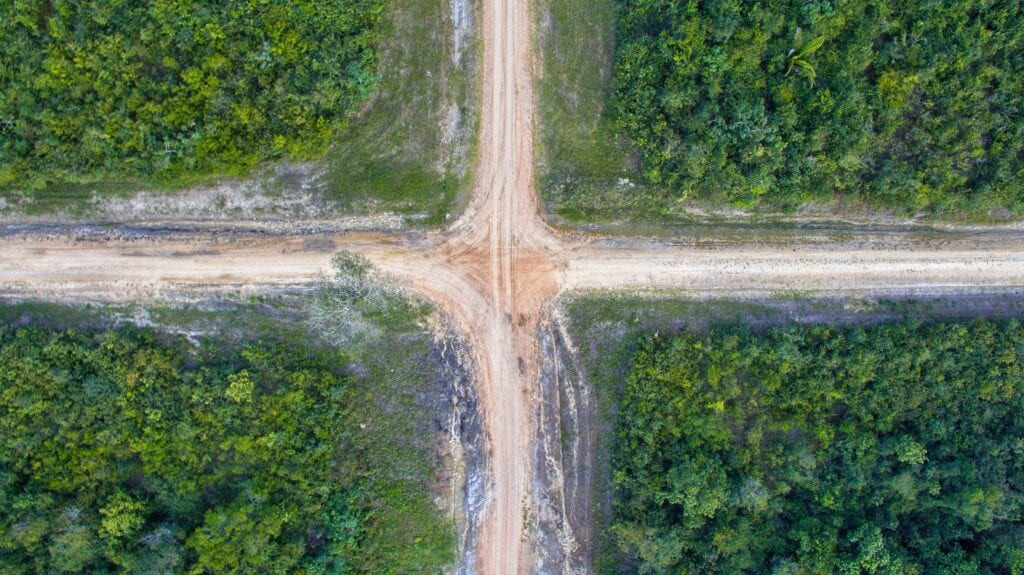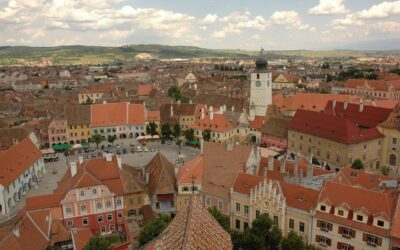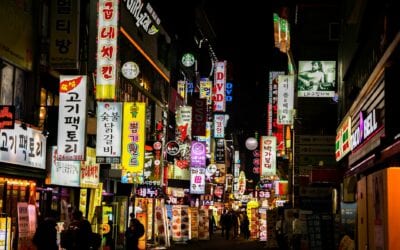The COVID pandemic and the social distancing measures and travel restrictions that have accompanied it have affected everyone.
But few have had the fundamentals of their way of life challenged in the same way as digital nomads.
While the pandemic has opened up many possibilities in terms of working remotely, it has closed down many options when it comes to non-essential travel.
Flights have been cancelled, borders closed, and visas denied. Many digital nomads have been forced to return home to gain access to healthcare or care for loved ones. Others have been grounded somewhere else in the world, often in places unexpected.
Many digital nomads made the decision to stay put when the pandemic first hit, thinking that it would only be a matter of months. Now, more than a year later, they may still be unable to return home and see family due to travel restrictions. Many Australians abroad are suing the Australian government for violating their right to return home.
The pandemic has certainly been disruptive for digital nomads, but just because you are grounded doesn’t mean that you are no longer a digital nomad.
What does it mean to be a Digital Nomad?

What does it really mean to be a digital nomad? Is travelling the world really the most important element of the lifestyle? Or is digital nomadism more of a mindset?
We think that what is important about being a digital nomad is working for yourself so that you control both when and where you work. This gives you the freedom to make more of the other parts of your life and really appreciate all the amazing things in the world.
This lifestyle lends itself to travel, since the world is an amazing place and there is so much to see, experience, and learn.
But just because you travel while you work doesn’t necessarily make you a digital nomad. If you are still spending the majority of your time staring at a screen, and you don’t have the time or the bandwidth to look up and see the amazing things in the world around you, are you really living the digital nomad lifestyle?
Similarly, just because you are temporarily grounded doesn’t mean that you are no longer a digital nomad. Are you still pursuing a career that gives you the freedom to do the other things that you want in your life? Are you making the most of where you are and spending your time discovering the world on your doorstep? Stuck in isolation? Are you making the most of your available time to work on yourself?
Is there a course that you have always wanted to do to open up new personal or professional opportunities? Is there a side business that you have never had time to invest in? Could you be using the extra time that being grounded has given you for self-development and self-reflection?
Essential Questions for Digital Nomads
While the pandemic has certainly been a trial for many digital nomads, it can also be seen as an opportunity.
Often, when we are always on the road and constantly consuming the adventure of travel, we can lose sight of what really matters to us, why we are doing what we are doing, and whether or actions are ethical.
So, rather than simply waiting for the world to “get back to normal” and return thoughtlessly to our previous way of life, now is the time for us all – digital nomad or not – to self-reflect and evaluate our choices and approaches.
With this in mind, here are three questions that we think every digital nomad should be asking themselves at this time, and some of our own self-reflections to help stimulate yours.
Why do you want to be a digital nomad?

When you initially decided to become a digital nomad, you probably had some very good reasons for making the decision. But as we learn, grow, and change with our experiences, we don’t always take the time to re-evaluate that decision and determine if our reasoning is still solid and whether it is still right for the person that we have become.
So, it is a good idea to take this time to reconsider what you were looking for when you decided to become a digital nomad. Did you find what you were looking for? Do you think that your current approach to the digital nomad lifestyle is still the best path to achieve what you want?
Did you become a digital nomad because you wanted to see the world? Are you still inspired by the new sights, sounds, cultures, and people? Is the way that you are travelling letting you discover the things about the world that you are looking for?
Did you become a digital nomad because you were looking for a certain work-life balance which would allow you to experience more of life than before? Is your digital nomad lifestyle still letting you do this? Or is the combination of hours worked and time spent on the logistics of travel actually leaving you with less time for the things that matter?
When you set out on your journey, did you intend to travel for a certain period of time and then either return home or set up a base somewhere, or were your plans open ended? Do your original intentions still make sense? Do you need to re-evaluate your finances, commitments to others, or investments in order to either keep travelling or start making plans for a more permanent living situation?
What changes could you make to improve your digital nomad experience?

As you consider the “why” behind your digital nomad lifestyle, now is also a good time to identify changes that you could make to your approach to digital nomadism that could help improve your situation.
While you may love the freedom and adventure of being a digital nomad, you have probably also identified some things that you are missing out on. This is often long-term relationships, and the ability to look after your health and wellbeing in the way that you would like. Could you be using your time while grounded to start thinking about strategies and methods that could help you address these issues.
How much of your time are you spending on “making money”, and are you enjoying what you are doing? Could you be balancing your work time better, and is there value in investing extra time that you might have at the moment into side hustles and your own business opportunities that could help you develop a passive income? Could now also be the time to invest in training and professional develop that it has been difficult to squeeze in while travelling?
Do you feel like you are making the most of your opportunity to see so much of the world? Or are you rushing through the world and not giving yourself enough time to appreciate all the places that you visit? Would you be better off taking a slower approach to travel and spending more time in each place?
In the wake of the COVID pandemic, many digital nomads are paying more attention to the idea of slowmadism. This is not a revolutionary idea, it is simply the idea of slowing down your travel and giving yourself more time to go deeper into the places that you visit.
Taking a little bit more time while travelling has many benefits beyond being able to really get to know a place on a more intimate level. It tends to be more cost effective and better for the environment, it makes it easier to balance work and travel, it has mental health benefits, and tends to let you form deeper and more fulfilling relationships.
You can read more about slowmadism and its benefits here.
Is your approach to digital nomadism ethical?

While most people who choose a digital nomad lifestyle tend to love the planet and have a deep respect for other cultures, the digital nomad lifestyle can inadvertently raise a variety of ethical questions.
Firstly, there is the question of environmental impact. While flight has made the world a more accessible place, mile for mile, flying is the most damaging way to travel for the climate in terms of carbon emissions. So, if you are the type of digital nomad who is on a flight every two weeks, you could be having an incredibly detrimental impact on the environment.
The challenges of the nomadic lifestyle also mean that digital nomads are often prone to buying pre-packaged and single-use items, such as bottled water and travel toiletries, and often produce a lot of food waste as a result of leaving things behind when you move on.
Are there things that you could change about your approach to travel that could make it more environmentally friendly? You can read our guide on being an eco-friendly digital nomad here.
Secondly, there is a question of neo-colonialism. Digital nomadism often allows people from wealthier nations to buy a level of privilege that they would not otherwise be able to afford at home by living in lower cost nations.
While digital nomads can bring money into an area, it rarely has much of an impact on the local community, as money is spent on things like accommodation, which generally benefits those who are already relatively well-off.
In areas of the world such as Bali and Chang Mai that attract large numbers of digital nomads, you often end up with nomad hubs, which are enclaves of expats. The wealth disparity between this group and the local community is often disturbing.
Are there things that you could be doing to better integrate with and support the community that is hosting you?
Many people look for volunteer opportunities as a way to give back to the local communities that they visit, but these do not always provide the benefits that we imagine. The demand for volunteer opportunities has led to volunteerism, with opportunistic businesses creating volunteer opportunities in order to get foreigners to pay for the privilege of participating.
Not only do these opportunities not benefit the local communities, but sometimes they can do real harm. Often animals are kept in captivity specifically to create attractive volunteer opportunities. Even worse, in some areas of the world children from happy homes are sent to spend time in orphanages so that visitors can have a better experience when helping the local children.
You can read our complete guide on how to conscience check volunteer opportunities abroad here.
The Verdict
While many digital nomads may feel like the restrictions that have accompanied the pandemic have taken the wind our of their sails, the small pause that this crisis has required many of us to take has also given us a moment to stop, think, and evaluate.
We are all often so busy doing that we don’t have time to consider whether the decisions that we have made in the past and what we are doing in the present are what is best for the person that we are today, and the person that we hope to be tomorrow.
We also don’t always have the opportunity to take a step back and really consider how our actions and choices may affect others, and this beautiful world that we call home.
Just because you are temporarily grounded doesn’t mean that you are no longer a digital nomad. Digital nomadism is more a mindset than a destination.
And now is the perfect time for digital nomads to take a step back and think about how we can improve our lifestyles to make them better for us on a personal level, and better for the planet.












